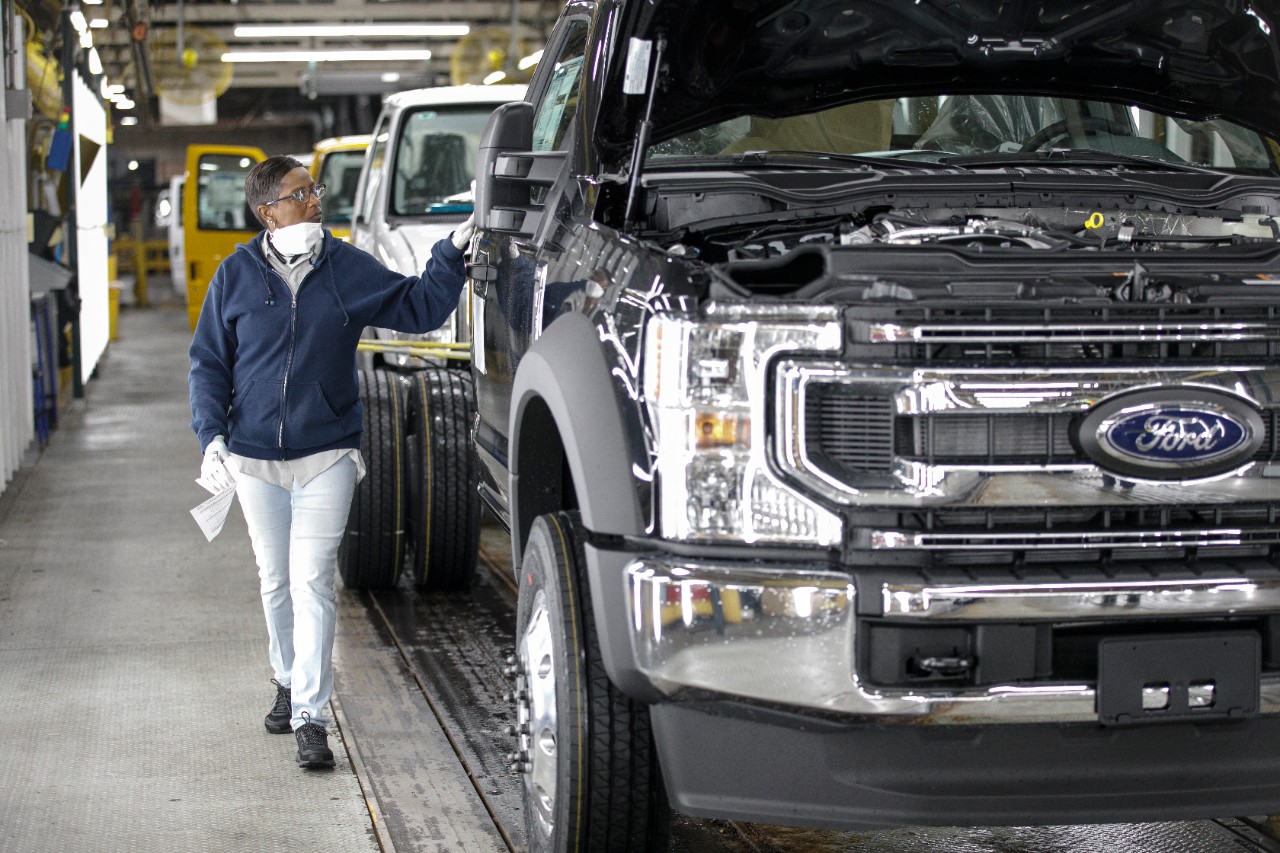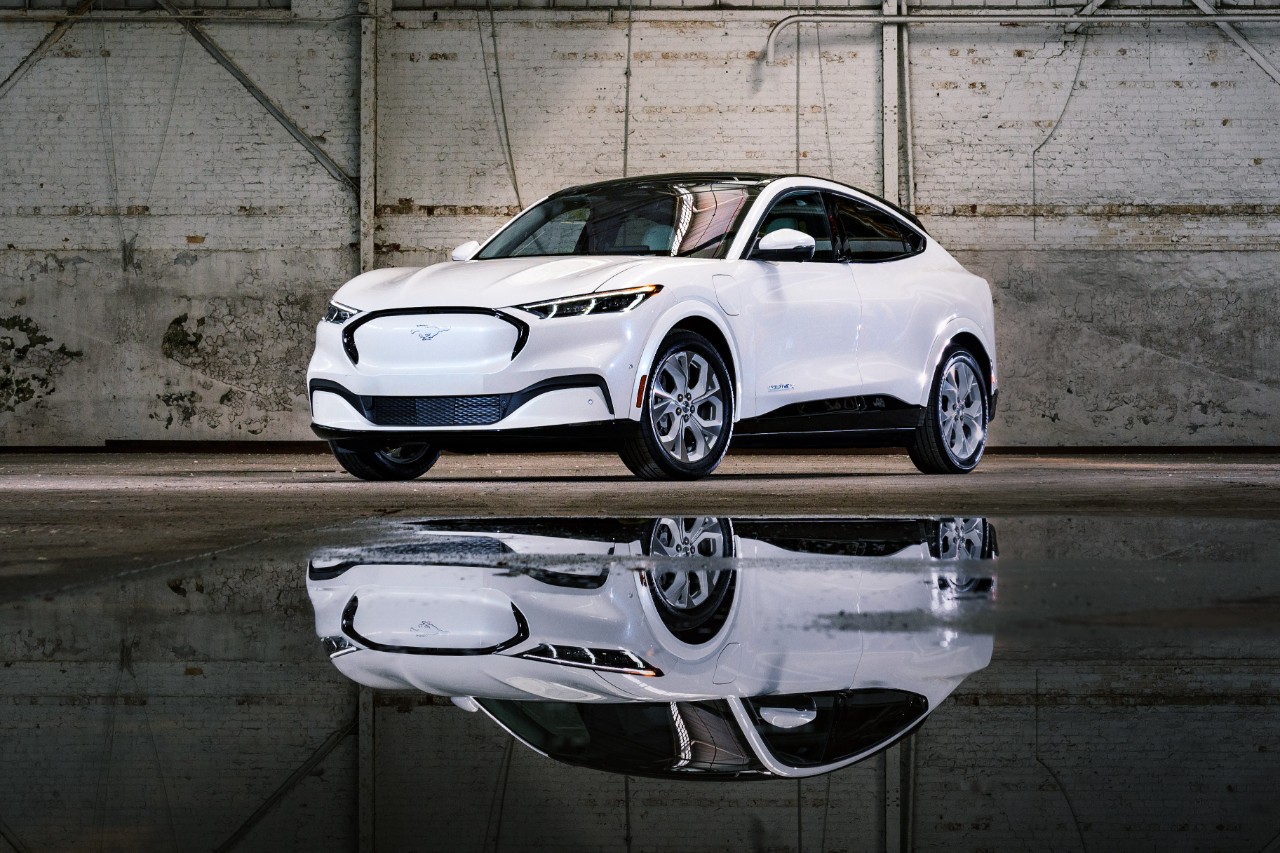Ford Motor Company (F +0.58%) is looking to a new partner to help it win more Chinese customers: search giant Baidu (BIDU +5.04%).
The two companies just announced a new deal to work together. Here's what we know.
What the companies said
Ford and Baidu said on Wednesday that they have signed a new "strategic cooperation" deal. Under the deal, the two will explore areas of cooperation in "connectivity, artificial intelligence (AI), and digital marketing," they said.

Ford and Baidu signed a cooperation agreement on Wednesday. From left to right, shown are Ya-Qin Zhang, president of Baidu; Tan Su, general manager of Baidu's internet of vehicles division; Robert Hou, director of mobility platforms and products for Ford Asia Pacific; and Peter Fleet, Ford group vice president and president of Ford Asia Pacific.
What does that mean? It sounds like the first priority will be in-car infotainment. The two will collaborate on new in-car systems that use Baidu's DuerOS-based conversational AI. Simply put, the Baidu system will enable Ford to offer a long list of in-vehicle voice-activated features and digital services via an ecosystem that is already familiar to many Chinese customers.
Ford and Baidu will also explore other opportunities to collaborate around vehicle connectivity and targeted digital marketing, they said. The intent is to build on the existing relationship between the two companies: Ford and Baidu are both investors in Velodyne Lidar, a maker of sensors for autonomous vehicles, and Ford joined Baidu's Apollo open-source self-driving project last year.
What Ford gets out of this
After a few years of good growth in China, Ford's sales in the world's largest new-car market have slid sharply. The problem: China's market is so fast-paced that Ford's vehicles, and to some extent, its technology, seem like old news.

Demand for SUVs in China is huge, but lately, Ford hasn't been able to take advantage. A special China-only three-row version of the Edge crossover was a big seller when it was first launched in 2015, but sales have dropped sharply over the last year. Image source: Ford Motor Company.
Ford's turnaround plan for China, announced in December, includes a slew of new models, as you'd expect, but it also includes a commitment to increased vehicle connectivity and "mobility services" that go beyond traditional vehicle ownership. The idea is not just to get new cars and SUVs into Chinese dealerships, it's to make sure those new Fords are stuffed full of technology that will stand out and appeal to Chinese consumers.
Given that plan, joining with Baidu to develop advanced in-car systems specifically for the Chinese market seems like a logical step. But there may be a longer-term reason for Ford to work closely with Baidu: self-driving.
Like its U.S. rival Alphabet, the Chinese search giant has been developing its own self-driving technology, possibly with an eye to deploying it in ride-hailing service -- but like Alphabet, it's not likely to get into manufacturing its own vehicles. Ford might be hoping to win what could be a big, ongoing piece of (autonomous) fleet business from Baidu.
Ford's Asia Pacific President Peter Fleet explained:
Collaborating with leading technology companies such as Baidu supports our vision to become the world's most trusted mobility company by leveraging new opportunities to build a sustainable mobility ecosystem. As part of our "In China, For China" strategy, we look forward to working closely to offer smart products and solutions that can make people's lives easier and more enjoyable.
What Baidu gets out of this
Baidu, like Google, is very interested in collecting data. Getting itself into Ford's vehicles is a clear and obvious win on that front. But it sounds like Baidu might also be thinking about who might build its eventual fleet of self-driving vehicles.
"Baidu and Ford share the vision of using technology to build the future of driving," said Ya-Qin Zhang, president of Baidu. "Together, with Baidu's leading-edge AI technology and Ford's advanced engineering expertise, we will transform the mobility ecosystem and create the next-generation in-vehicle experience for consumers."
The upshot: A good move for Ford in China
I'm sure Ford would love to roll out its own, proprietary infotainment, connectivity, and self-driving networks in China, just as it's probably planning to do in the United States. But the reality is that Ford isn't big enough in China to pull that off by itself. It needs a partner -- and Baidu might turn out to be a very good one.
The risk, here, is that Ford ends up building fleets of "dumb cars" operating on Baidu's self-driving software, of course. But given the realistic alternatives for Ford in China, that might turn out to be a pretty good piece of business for Ford to have. And given that Ford is probably the world's leading provider of vehicles to commercial fleets, it might turn out to be a very good partner for Baidu, as well.







